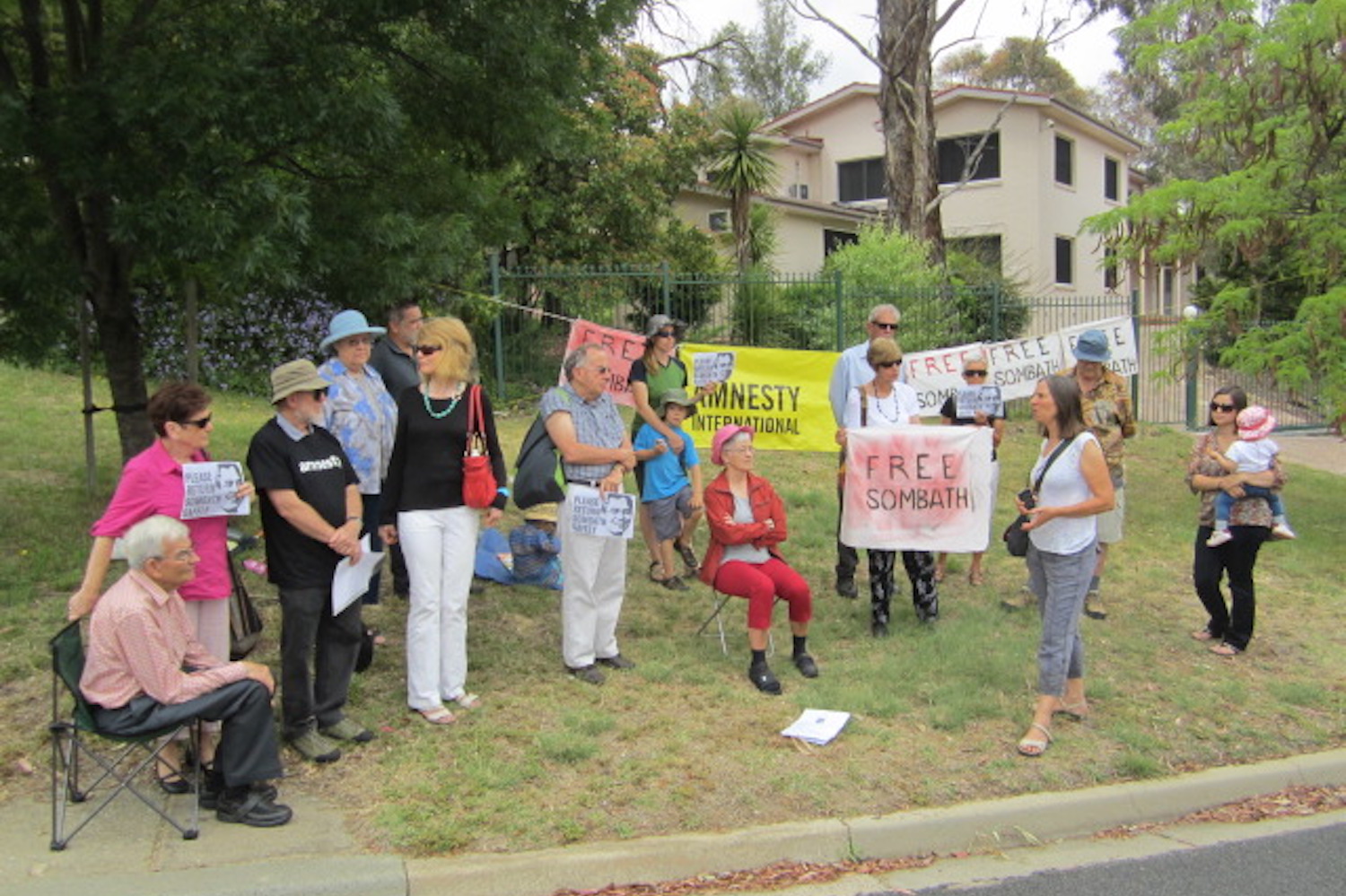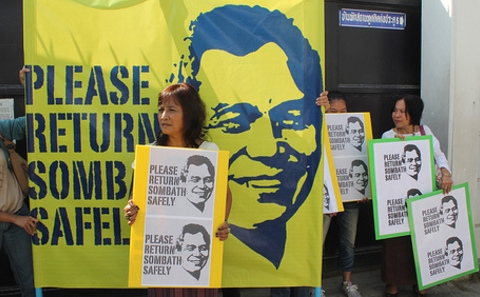Radio Free Asia: 20 March 2015

Lao activists are crying foul at a stealthy, failed attempt by their government to delete the disappearance of the country’s most prominent civil society leader from the list of regional human rights issues to be discussed on the sidelines of the Association of Southeast Asian Nations (ASEAN) summit in Malaysia next month.
The activists say a retired Lao government official served as a proxy for the authoritarian government in Vientiane and lobbied the ASEAN People’s Forum to erase the name of Sombath Somphone, a prominent civil rights leader who has been missing for more than two years, from a list of human rights and governance problems in Southeast Asia.
Sombath went missing on Dec. 15, 2012, when police stopped him in his vehicle at a checkpoint in the capital Vientiane. He was then transferred to another vehicle, according to police surveillance video, and has not been heard from since.
Rights groups suspect that Lao officials were involved in or aware of the abduction of Sombath, who received the 2005 Ramon Magsaysay Award for Community Leadership—Asia’s equivalent of the Nobel Prize—for his work in the fields of education and development.
Lao officials have yet to state a reason for his disappearance or make any progress in the case, which has become a major headache for the Vientiane government, drawing criticism from European and U.S. development partners and aid donors and attention from the United Nations. Continue reading “Laos Tries But Fails to Make ASEAN NGOs Ignore Plight of Missing Activist”







